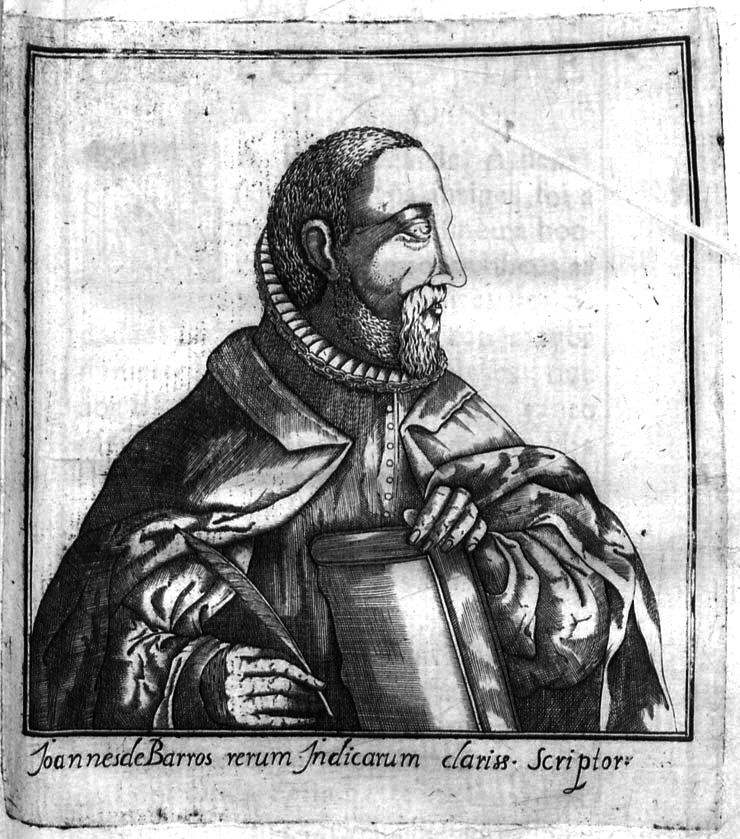
Portrait of João de Barros in Manuel Severim de Faria, Discursos Varios Politicos. (Évora: Manuel Carvalho, 1624).
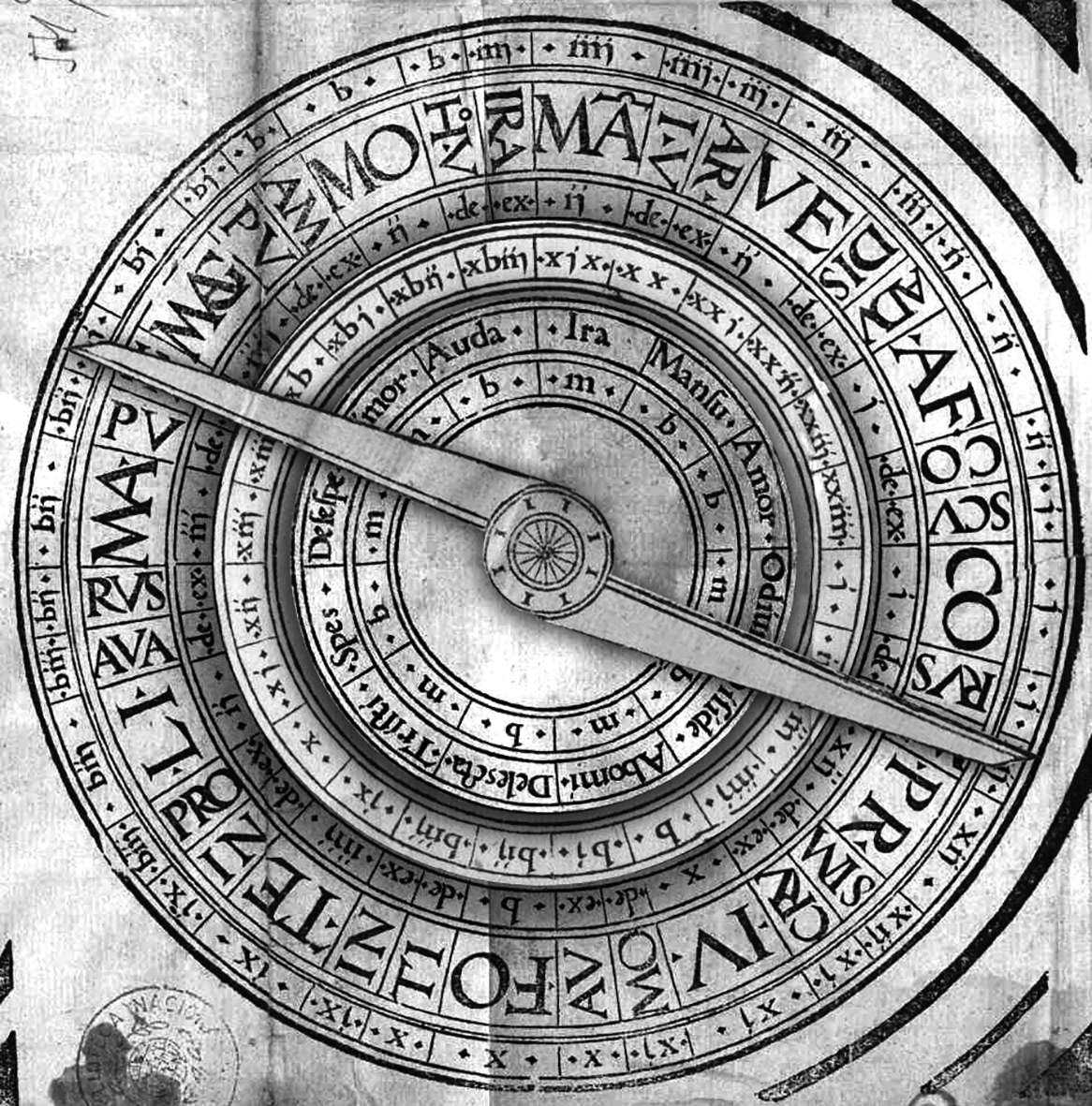
The three rotating boards of the game as they are to be set, pointer included.
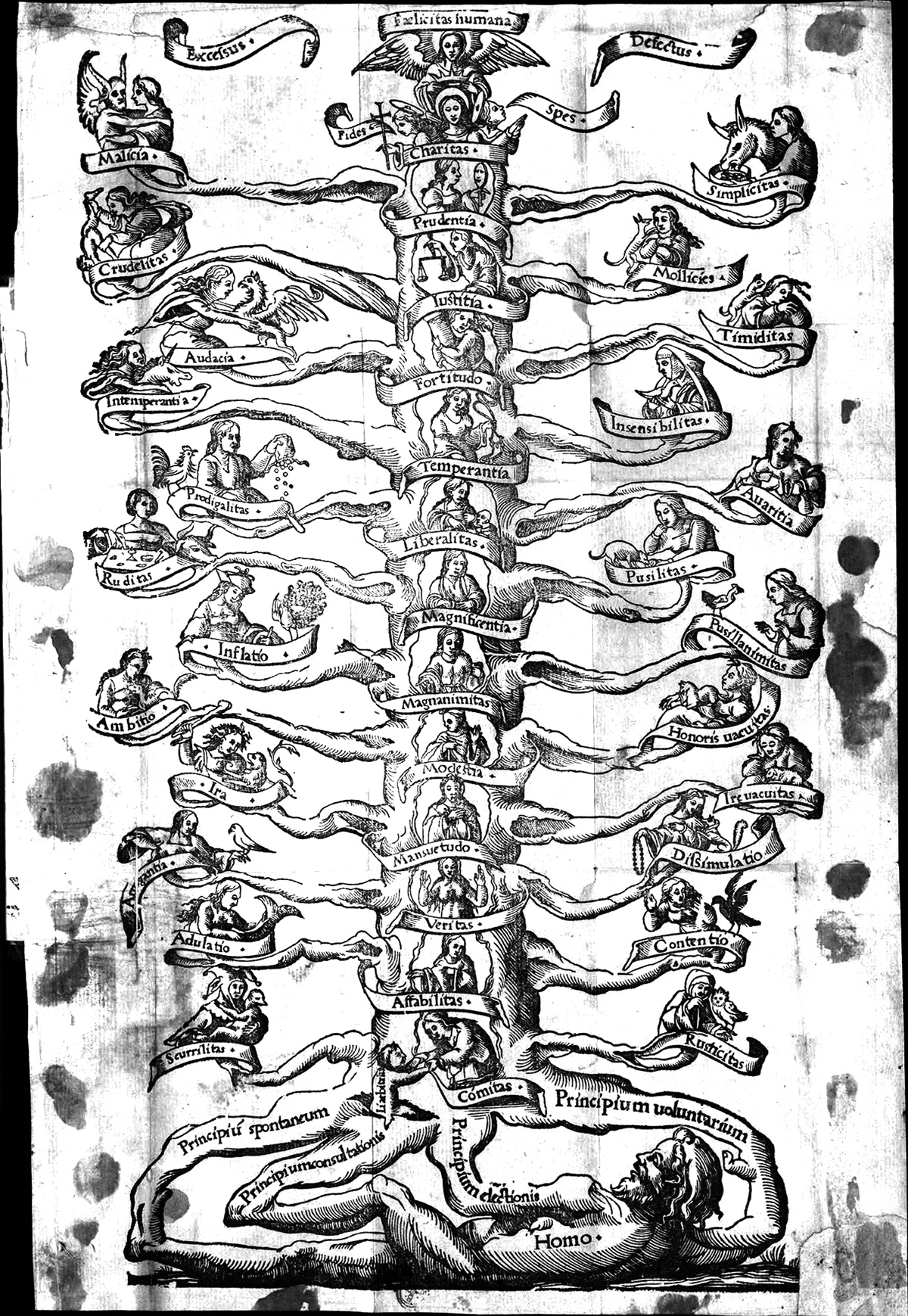
The woodcut of the Tree of Virtues from the 1563 edition.
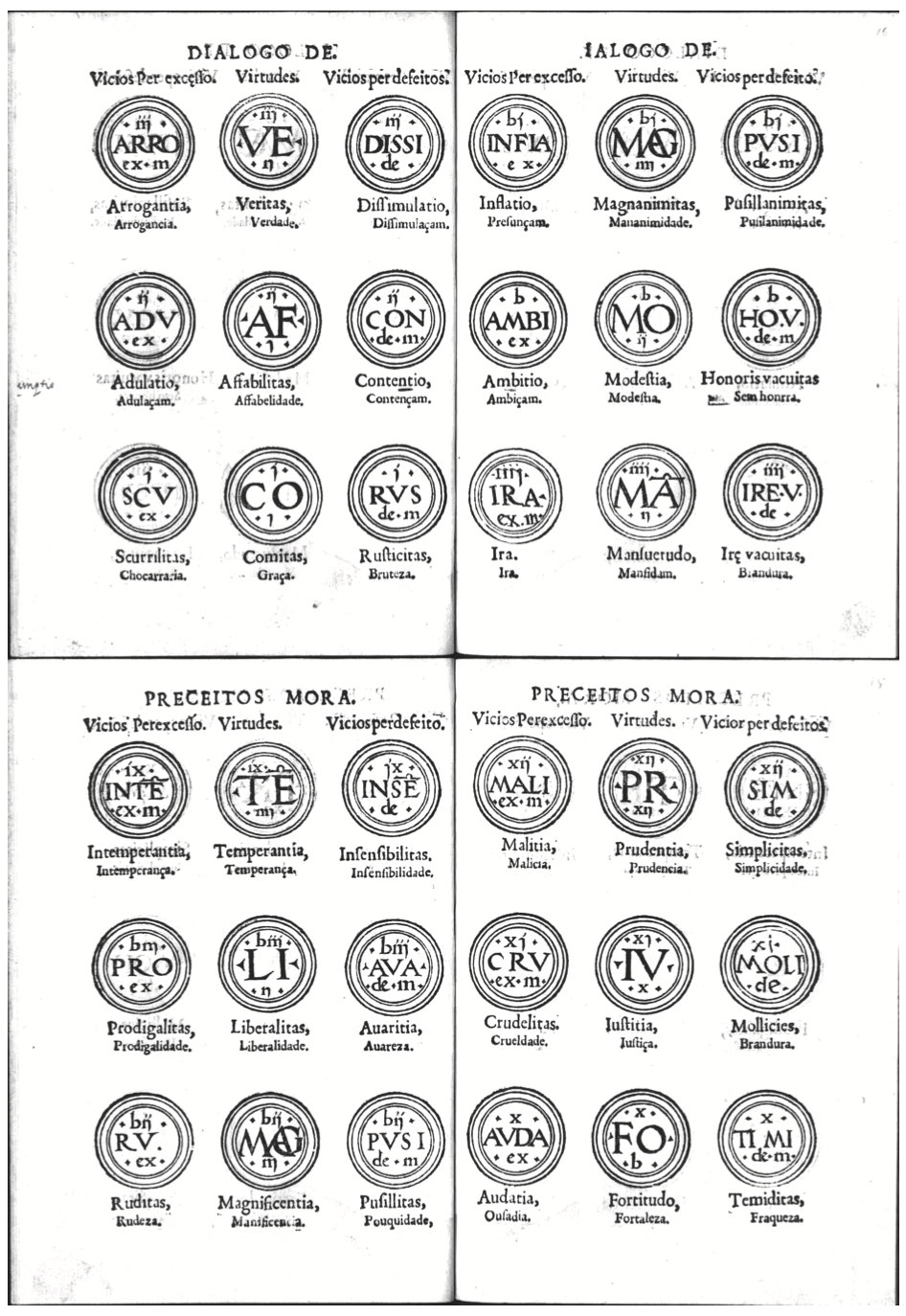
The pieces to play the game
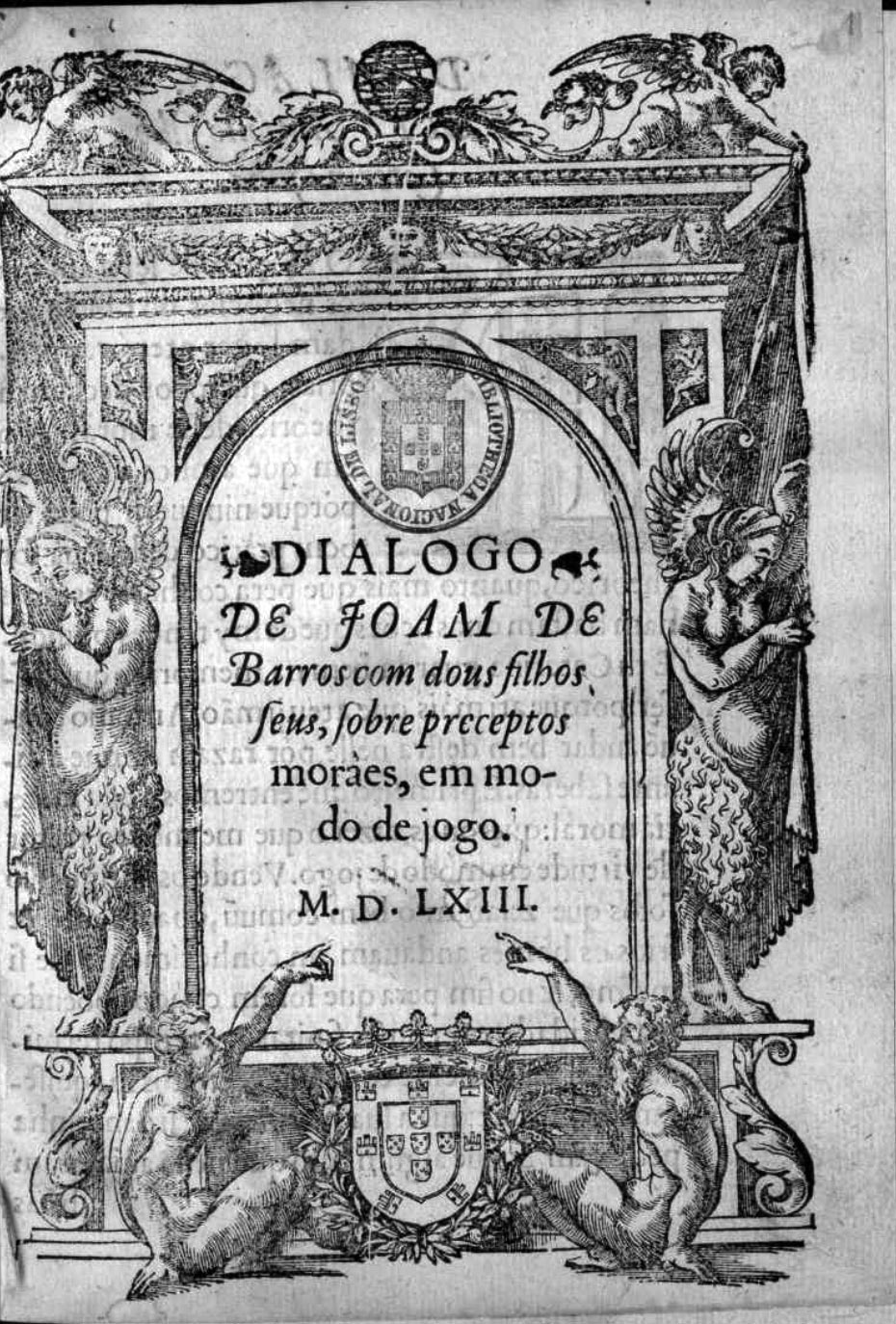
Frontispiece of the second edition at the Biblioteca Nacional de Portugal
HACKING THE GOOD LIFE
The Diálogo [...] em modo de jogo is an early-modern book on Aristotle’s Ethics, written by João de Barros in 1540. It includes a board game which is meant to help players memorise virtues and vices and how and why they are performed. Barros created this game using schemes and interactive visualisations, adding playfulness so that it would be fun as a pastime for the young.
The team works together to hack João de Barros' 16th-c. book and game "Dialogo de preceitos moraes [...]". So far, we have recreated the game, as is, as a printable (board game) prototype, and the team has played the game in order to understand it thoroughly. In the next iteration of the hack, we will take the game apart and remix/adapt it to create something entirely different.
Check out our latest publications and events:
Article for Matlit: Materialidades Da Literatura 11 (1) (2025):
“What ELO23 taught us about hacking the good life: Observations on the 'know thyself' role-playing prototype”
Celeste Pedro and Terhi Marttila.
doi: https://doi.org/10.14195/2182-8830_11-1_11
“What ELO23 taught us about hacking the good life: Observations on the 'know thyself' role-playing prototype”
Celeste Pedro and Terhi Marttila.
doi: https://doi.org/10.14195/2182-8830_11-1_11
Book Chapter for Filosofia em Vernáculo na Idade Média e na Alta Idade Média (2024):
“A Arte Memorativa de João de Barros e a Quantificação das Virtudes e Vícios”
Celeste Pedro.
doi: https://doi.org/10.21747/978-989-9213-63-0/fil
“A Arte Memorativa de João de Barros e a Quantificação das Virtudes e Vícios”
Celeste Pedro.
doi: https://doi.org/10.21747/978-989-9213-63-0/fil
2º Encontro de Investigação FLUP - Práticas Interdisciplinares, Colaborativas e/ou Digitais nas Humanidades e Ciências Sociais on 18 & 19 November 2024
Oral communication: “Exploring Diagrammatic Expression: a collective gallery of trees and circles” Celeste Pedro, Terhi Marttila, Carla Carvalho & Michel Kabalan
Book of Abstracts: https://doi.org/10.5281/zenodo.14173274
Oral communication: “Exploring Diagrammatic Expression: a collective gallery of trees and circles” Celeste Pedro, Terhi Marttila, Carla Carvalho & Michel Kabalan
Book of Abstracts: https://doi.org/10.5281/zenodo.14173274
We were at Diagrams 2024 on September 27th 2024!
TUTORIAL: “Digital Volvelles”
Celeste Pedro and Terhi Marttila
TUTORIAL: “Digital Volvelles”
Celeste Pedro and Terhi Marttila
-
The Midnight Rotating Tree - research project
PRACTICAL SEMINAR SERIES
Key talks, drawing classes and workshops about Circles!
13 & 14 September 2024 At Faculdade de Letras da Universidade do Porto.
Key talks, drawing classes and workshops about Trees!
26 & 27 July 2024 At Faculdade de Letras da Universidade do Porto.
Deliverables:
-
Article for The Digital Review. 3 (2023):
“Hacking the Good Life”
Celeste Pedro, Terhi Marttila and Sandra Simões.
doi: https://doi.org/10.7273/zyyq-xs17
“Hacking the Good Life”
Celeste Pedro, Terhi Marttila and Sandra Simões.
doi: https://doi.org/10.7273/zyyq-xs17
A Booklet describing the project, with a printable version and simplified rules (2023):
“Hacking the Good Life. João de Barros and the Game of Moral Virtues”
Celeste Pedro, Terhi Marttila, Sandra Simões and Luradontsurf
doi: https://doi.org/10.21747/978-989-9082-75-5/hac
“Hacking the Good Life. João de Barros and the Game of Moral Virtues”
Celeste Pedro, Terhi Marttila, Sandra Simões and Luradontsurf
doi: https://doi.org/10.21747/978-989-9082-75-5/hac
Oral communication at the V Congresso Internacional SPF, Évora, Portugal (2023):
“A arte memorativa dos bons costumes de João de Barros”
Celeste Pedro
Workshop at the ELO Conference, Coimbra, Portugal (13/7/2023):
“Hacking João de Barros’ 16th-century Diálogo [...] em modo de jogo, a combinatorial game about moral vices and virtues”
Celeste Pedro and Terhi Marttila
handle: https://hdl.handle.net/10216/154785
Source References:
João de Barros, (1540 princeps edition), Dialogo de preceitos moraes co[m] prática delles, em módo de iogo, Lisbon: Luis Rodrigues. can be accessed at https://purl.pt/12149.
The book's second edition, Dialogo de Ioam de Barros com dous filhos seus sobre preceptos moraes em modo de jogo, printed in 1563 by João de Barreira (and the only existing copy containing the elements/illustrations of the game), can be accessed at http://purl.pt/15189.
Team biographies:
Terhi Marttila - https://terhimarttila.com
Together with Celeste, Terhi is responsible for understanding Barros’ book and game through making, implementing/programming the digital hacks of Barros. Terhi Marttila is an artist-researcher with a PhD in digital media from the University of Porto, a researcher at the Interactive Technologies Institute and a postdoctoral fellow (IST-ID) in the eGames Lab project. Terhi creates playful interactive works that sit more or less within the realm of digital literature and poetry. Her works have been published on raum.pt, nokturno.fi, the New River Journal, in the Electronic Literature Collection 4 and shared at various conferences, including ELO, ACM SIGGRAPH SPARKS, Consciousness Reframed, Videojogos, Art of Research, among others.
firstname.lastname@gmail.com
Celeste Pedro - https://historicaltype.eu/work
Celeste is an expert on Barros' book and game. Celeste Pedro is a communication designer graduated from the Fine Arts Faculty in Porto, Portugal. Her main focuses have since been typography and editorial design. She holds a master’s in Design and Intermedia from the University of Barcelona. Her studies on dictionaries design have led her closer to the field of the History of Typography and to the engagement in various language courses, workshops, and summer schools related to the edition of texts and book production. In recent years, she specialised in early printed books and palaeography while conducting her PhD research on the History of Portuguese Print Culture in the Sixteenth Century, funded by FCT. Recently he was a post-doc researcher for the project "From Data to Wisdom - Philosophizing Data Visualizations in the Middle Ages and Early Modernity (13th-17th c.)" at the Institute of Philosophy of the University of Porto, where she now continues her work on medieval and early modern diagrams.
cpedro@letras.up.pt
Sandra Veríssimo Simões - https://www.linkedin.com/in/sandra-simões-358592122/
Sandra is responsible for translating Barros' work into English. Sandra Simões is a Portuguese translator and language consultant with over 20 years of experience working both with businesses and academic institutions. She is certified by the Chartered Institute of Linguists and holds a Master’s Degree in Medieval Portuguese.
Luciana Lima - https://www.gameartandgenderequity.com/
Luciana is a psychologist and researcher at ITI (Interactive Technologies Institute/LARSyS). Her academic background includes Arts, Social Psychology and Educational Sciences. She is the co-creator of the research project entitled Game Art and Gender Equity (GAGE). In 2023, she published a book on the results of her post-doctoral research in Multimedia Art carried out at the Faculty of Fine Arts of the University of Lisbon. She has teaching experience in higher education institutions both in Brazil and Portugal. She has published several articles and book chapters on the integration and participation of women in the Portuguese digital games industry.
luciana.lima@tecnico.ulisboa.pt
Luradontsurf - https://www.behance.net/search/projects?search=luradontsurf
Luradontsurf aka Lara Mendes is from Seia and has been illustrating since kindergarten. She took a Fashion Design course at the former Citex but later realized that illustration was everything to her. She is a multidisciplinary artist who went through the world of traditional animation, cinema, and tattoos and currently lives in Porto, where she works in illustration and graphic design. She loves cats.
lura.dontsurf@gmail.com
The first step in the process: a playable and printable prototype of the game, true to Barros' original instructions, with an added fourth circle designed by Celeste Pedro to make the game playable. cpedro©2021
Previous works by the team members:
Pedro, C. (2019). Oral communication: Trees and Circles: Knowledge Through Practice in a Sixteenth-Century Board Game. At The Challenges of Design: Imagination, Aesthetics and New Technology International Meeting, 26 June. At Faculdade de Letras da Universidade do Porto.
Pedro, C. & Higuera, J. (2020). Workshop: The Game of Moral Precepts. 27-28 Feb. At Faculdade de Letras da Universidade do Porto.
Pedro, C. (2021). A Sixteenth-Century Board Game by João de Barros. In Illustration and Ornamentation in the Iberian Book World, 1450-1800, (Ed.) Alexander Samuel Wilkinson, 284-314. BRILL.
Marttila, T. (2016) Give me a reason. Digital artwork.
Marttila, T. (2019) We cannot take them all. Digital artwork.
Marttila, T. (2020) Speak out. Digital artwork.
Marttila, T. (2021) Transplanted. Digital artwork.